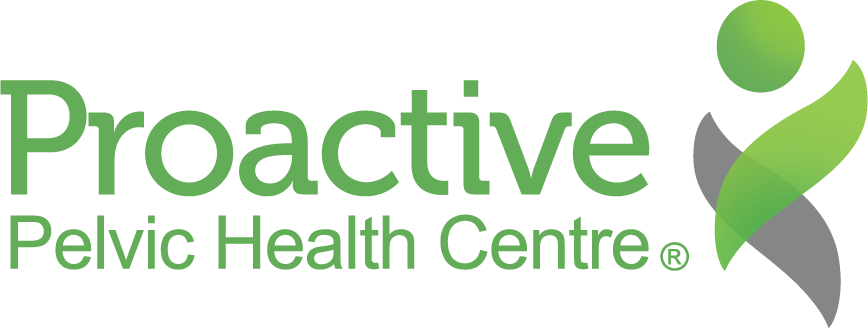5 Supplements to Consider If You Are Living with Endometriosis
By Dr. Alexsia Priolo
Navigating the supplement aisle can be difficult if you’re living with endometriosis or any other health condition. As a Naturopathic Doctor I often look at why a condition is happening, so I can address it along with the symptoms many of my patients experience. While there is no definitive cause as to why endometriosis happens, inflammation and estrogen dominance are two modifiable factors that I commonly address. The following is a list of supplements that can help address either of the two:
Supplements
Probiotics
One study has shown that vaginal pH may slightly increase for women taking GnRH agonists such as lupron after 4-6 months of treatment. An increase in the vaginal pH will cause the vagina to become slightly less acidic and have a greater population of Gardnerella and E. coli bacteria as opposed to the preferred Lactobacillus strains. The former two bacteria often give rise to bacterial vaginosis and urinary tract infections.
Therefore, if you are prone to vaginal infections and are taking a GnRH agonist, it may be prudent to consider adding a probiotic today to help maintain a healthy pH microbial balance.
Curcumin
Curcumin is an active substance in turmeric, and actually gives turmeric its bright yellow colour. Curcumin has antioxidant and anti-inflammatory properties that can be useful in dealing with the inflammation present in endometriosis. Curcumin may work via a few different mechanisms – it can cause cell death in endometriosis lesions, it can subdue estrogen production by these lesions, and lastly it can prevent these lesions from forming new blood vessels.
Before you start drinking a turmeric latte every morning, it’s important to recall that a specific amount of curcumin is needed to gain these desired benefits.
NAC
N-acetyl cysteine is a potent antioxidant and anti-inflammatory. In a study using Italian women, those given NAC experienced a reduction of endometrial cyst size, and many women scheduled for a laparoscopy cancelled their surgery due to size reduction, cyst disappearance, pain reduction and pregnancy.
Ginger
This fiery-hot herb is both an anti-inflammatory and an anti-spasmodic (meaning it relieves muscle spasms). While many of us are familiar with it’s use in helping relieve nausea, it also has powerful effects in relieving period pain, and is just as effective as some popular pain medications.
Vitamin C
This ever-popular vitamin is a known antioxidant. In a study in women with pelvic pain and endometriosis, it was demonstrated that vitamin C (combined with vitamin E) improved chronic pain, period pain and painful sex! Lastly, inflammatory markers were continually assessed throughout the study and a significant decrease was seen at the conclusion of the study. This is another great reason to supplement or make sure you’re eating fruits and vegetables!
Final Thoughts
Although I’ve gone through the list of potential supplements that might be helpful for endometriosis, it’s best to work with Naturopathic Doctors to see which supplements are best for your lifestyle and particular symptoms. Not to mention, certain lifestyle factors such as nutrition and stress can also be the reason for unwelcome symptoms like pain.
If you are looking to complement your physiotherapy and/or massage treatments, book an appointment today with me, Dr. Alexsia! I’ll work with you to create a manageable and unique treatment plan that will work for you – not against you!
References
1. Khan K, Fujishita A, Kitajima M, Hiraki K, Nakashima M, Masuzaki H. Intra-uterine microbial colonization and occurrences of endometriosis with women with endometriosis. Human Reproduction. 2014;29(11)-:2446-2456. doi:10.1093/humrep/deu222.
2. Jana S, Paul S, Swarnaker S, Curcumin as anti-endometriotic agent: Implication of MMP-3 and intrinsic apoptotic pathway. Biochem Pharmacol. 2012;83(6):797-804. doi:10.1016/j.bcp.2011.12.030.
3. Porpora M, Brunelli R, Costa G et al. A Promise in the Treatment of Endometriosis: An Observational Cohort Study on Ovarian Endometrioma Reduction by N-Acetylcysteine. Evidence-Based Complementary and Alternative Medicine. 2013;2013:1-7. doi: 10.1155/2013/240702.
4. Shirvani M, Motahari-Tabari N, Alipour A. The effect of mefenamic acid and ginger on pain relief in primary dysmenorrhea: a randomized clinical trial. Arch Gynecol Obstet. 2014;291(6):1277-1281. doi: 10.1007/s00404-014-3548-2.
5. Santanama N, Kavtaradze N, Murphy A, Dominguez C, Parthasarthy A. Antioxidant Supplementation Reduces Endometriosis-Related Pelvic Pain in Humans. Obstet Gynecol Sur. 2013;68(10):685-686. doi:10.1097/01.ogx.0000436760.18081.4d.


